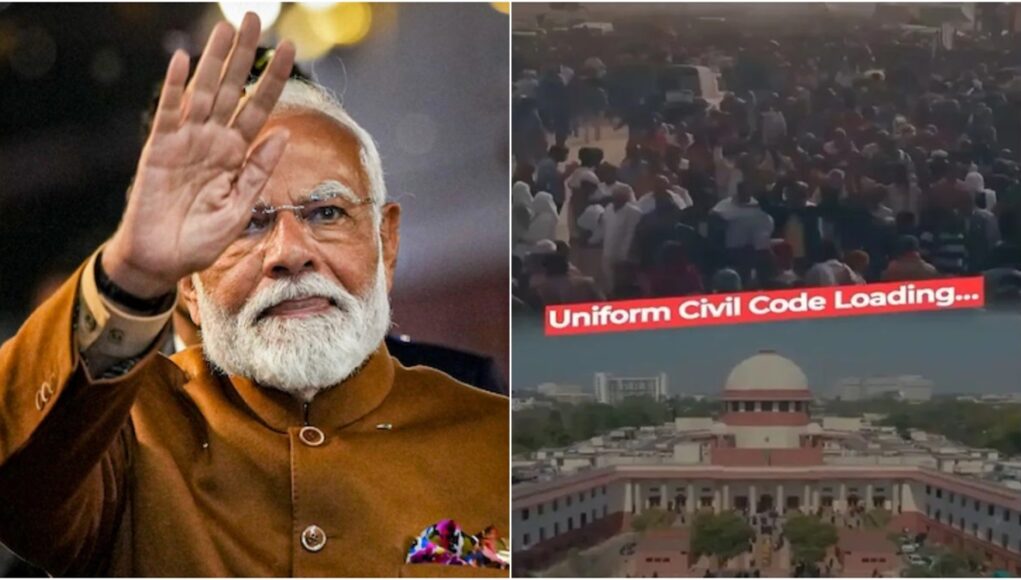Source : INDIATV NEWS
Shared via the party’s official X handle, the video is titled “Big Moves Under Modi 3.0 – The Journey’s Just Begun…” and offers a glimpse into the central government’s next potential milestone — the implementation of the Uniform Civil Code (UCC).
Ahead of the completion of one year of Modi 3.0, the Bharatiya Janata Party (BJP) has released a video highlighting its key achievements and also signalling that bold moves are still to come. Shared via the party’s official X handle, the video is titled “Big Moves Under Modi 3.0 – The Journey’s Just Begun…” and offers a glimpse into the central government’s next potential milestone — the implementation of the Uniform Civil Code (UCC).
The video also takes a direct swipe at the Opposition’s remarks that had cast doubts over the stability of the NDA’s third term, predicting a fractured coalition and a weak government. Contradicting those claims, the BJP showcases the Modi government’s decisive actions and strong footing during the past months.
Among the major initiatives highlighted is the overhaul of the Waqf laws, which the party cites as part of its commitment to reform. But what’s catching everyone’s attention is the clear indication that the government is now moving towards the long-debated Uniform Civil Code — a move which is considered to be one of the biggest policy shifts in this term.
WATCH THE VIDEO HERE:
Major developments so far during Modi government’s third term?
- National Herald case: Chargesheet filed against Sonia Gandhi and Rahul Gandhi.
- Action in PNB scam: Mehul Choksi arrested in Belgium.
- 26/11 Mumbai attack case: Mastermind Tahawwur Rana extradited to India from the US.
- Gurugram land scam: Robert Vadra’s questioning by the Enforcement Directorate.
- Waqf Amendment Bill: Parliament passes the Waqf Amendment Bill
- Assembly Elections: The NDA’s impressive wins in Delhi, Maharashtra, and Haryana
What is the Uniform Civil Code (UCC)?
The Uniform Civil Code (UCC) refers to a proposed set of laws in India that aims to replace personal laws based on religious customs and scriptures with a common set of laws governing personal matters like marriage, divorce, inheritance, and adoption. Currently, different communities in India follow their own personal laws — for instance, Hindus, Muslims, Christians, and Parsis have separate laws based on their religious texts.
The idea behind UCC is to ensure equality and uniformity in civil matters for all citizens, irrespective of religion, caste, or gender. It is enshrined in Article 44 of the Indian Constitution as a Directive Principle of State Policy, which urges the state to work towards a common civil code for all.






